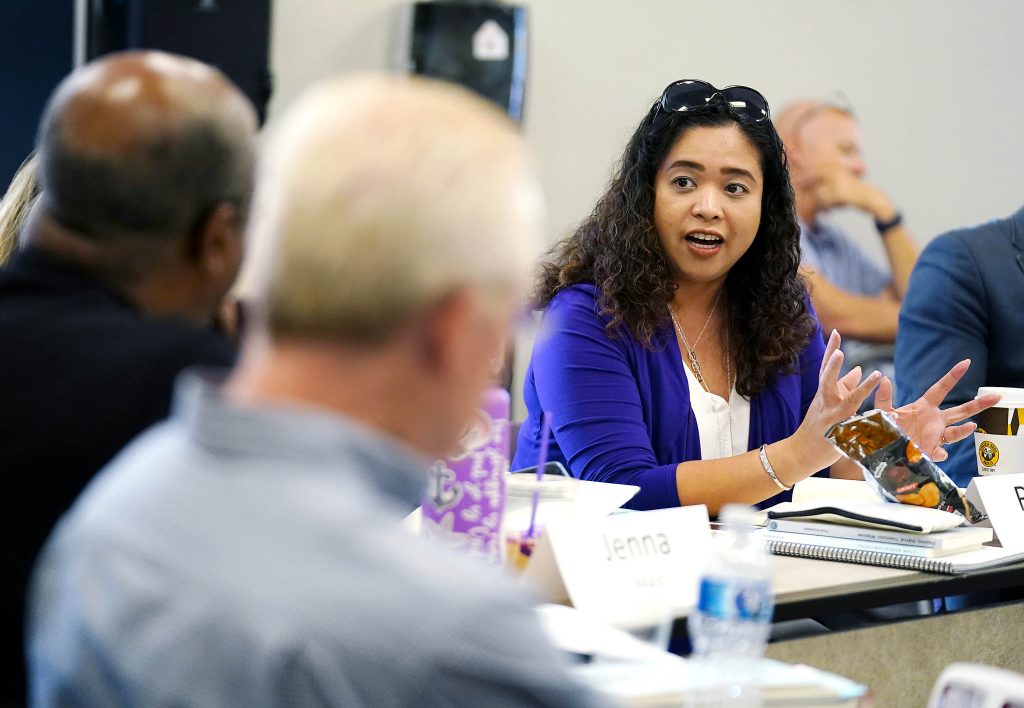
Photos by Ralph Freso
They came to the first big event from the new Canyon Center for Character Education at Grand Canyon University not knowing what to expect. But many of the 24 faculty members, administrators and staff who attended left with a new sense of self.
The three-day Wisdom for Good retreat was led by Dr. Bernard Franklin, Vice President of Student Life at Mount St. Mary’s University, and Dr. Tony Klemmer, founder of Wisdom for Good, a retreat program for adult personal transformation.
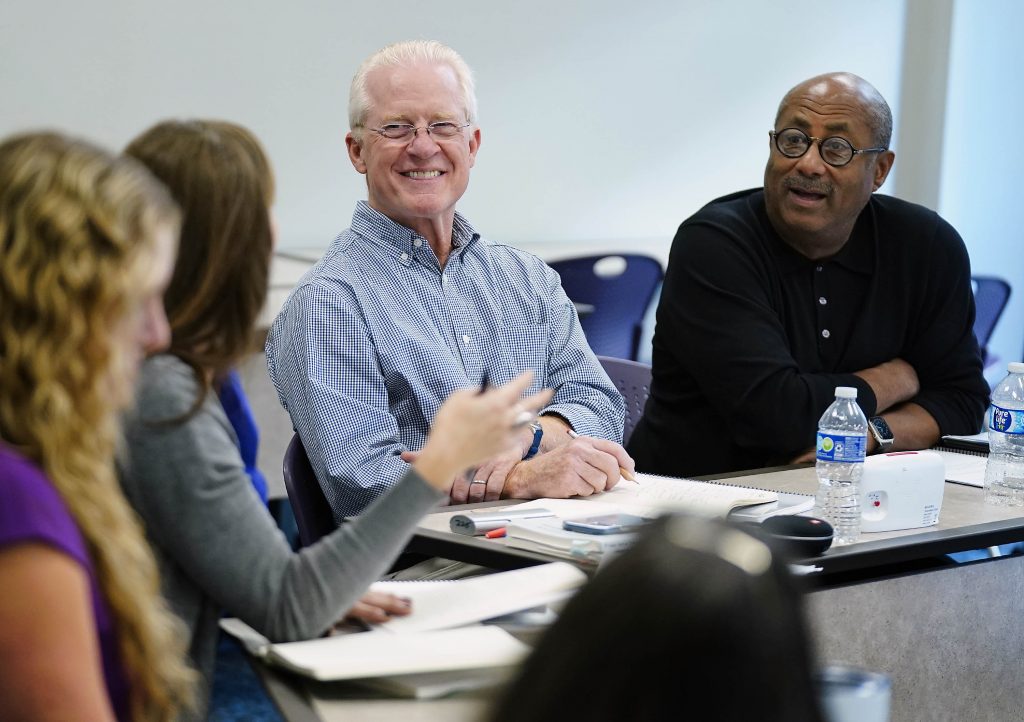
“The long-term goal is to infuse education with character,” Klemmer said. “How do you do that? You build ways to develop human flourishing and kindness and design curriculum around it. But you can’t form it in students until you do it in teachers first.”
They listened to music, pondered art and read literature, all to tease out a connection with others and explore moral goodness and craft a life of meaning to positively impact those around them.
During one of the sessions, Remilyn Mueller of the Online Full-Time Faculty was struck nearly speechless by a line from an autobiography of illiterate sharecropper Nate Shaw, who faced racial prejudice in the 1930s.
“Somebody got to stand up!” Shaw said.
It was Mueller’s big takeaway.
“Standing up, even alone, requires courage and wisdom,” she said. “There would be moments that would call for love, kindness, generosity, compassion, empathy, justice, and so on, and somebody got to stand up for it.
“These moments may happen in personal relationships, work, communities and other social connections. That somebody is ME. The lessons from the retreat made that clear.”
She said GCU embodies that philosophy.
“Its very presence is standing up against poverty, crime, prostitution, drug addiction, etc. Its presence gives hope to people, especially the younger generation,” she said. “As individuals, as GCU employees, we can illuminate that in our daily actions.”
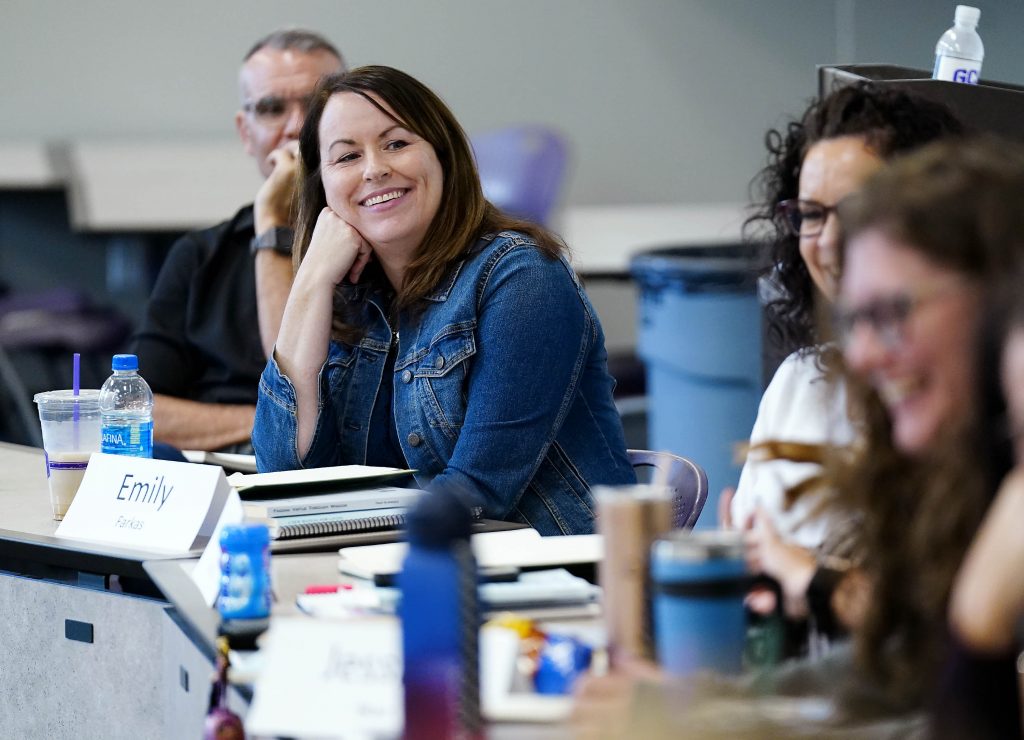
She hopes to unpack those lessons of moral goodness, human flourishing and the meaning of life in her interactions with her students.
The retreat went a long way to building community among faculty and staff by asking how each participant defines those three areas, said Emily Farkas, Program Director for the Canyon Center for Character Education.
These were difficult topics, asking us each to discern our motivations and drive to be good, she said. Having the time to reflect on it was important, especially as educators impacting their students.
“Taking the time to explore these topics is meaningful both personally and professionally,” she said. “In taking this time to reflect, we can have an impact on human and societal flourishing.”
A line that stuck with her after the retreat, repeated in the closing day’s session by Franklin: “Show your humanity.”
“It means being courageous, being brave, being compassionate,” Farkas said. “How we present ourselves can have an impact on people.”
Many participants said they were so taken by the exploration of the times in their own lives when faced with moral dilemmas or failings that they went home and shared it with family members for the first time.
Representatives in the business school said it’s a discussion that is vital for students in that competitive field, and Theology leaders said it widened their perspective with examples in literature and music.
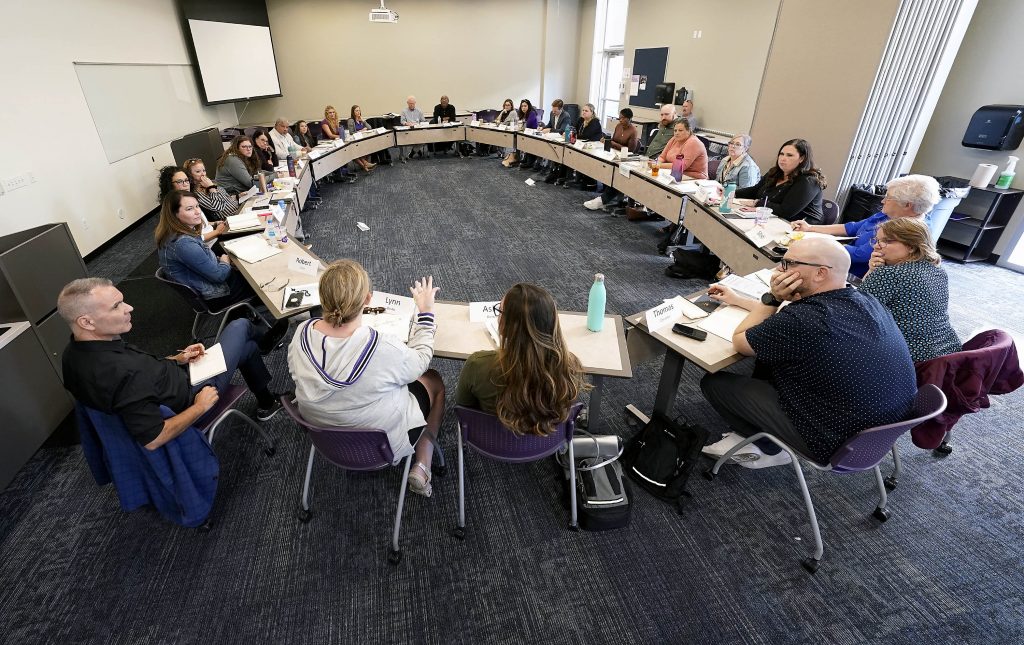
For College of Education leaders, such as Online Full-Time Faculty Chair Sheila Damiani, it helped define how she can lead 22 faculty members to reflect.
“What is my moral virtue or lack of moral virtue that I need to improve upon before I can go into my online classes and teach my teacher candidates?" she asked. "We talk all the time in education about the power of reflection. We tell our teacher candidates to do it, but in all honesty I don’t know how many do it ourselves. So this was an opportunity to do it and think how we need to do this more with who we lead so we can do it with our future students.”
To do that requires going deeper into their own issues. It sparked conversations with her husband how to share their moral virtues with their children and family members.
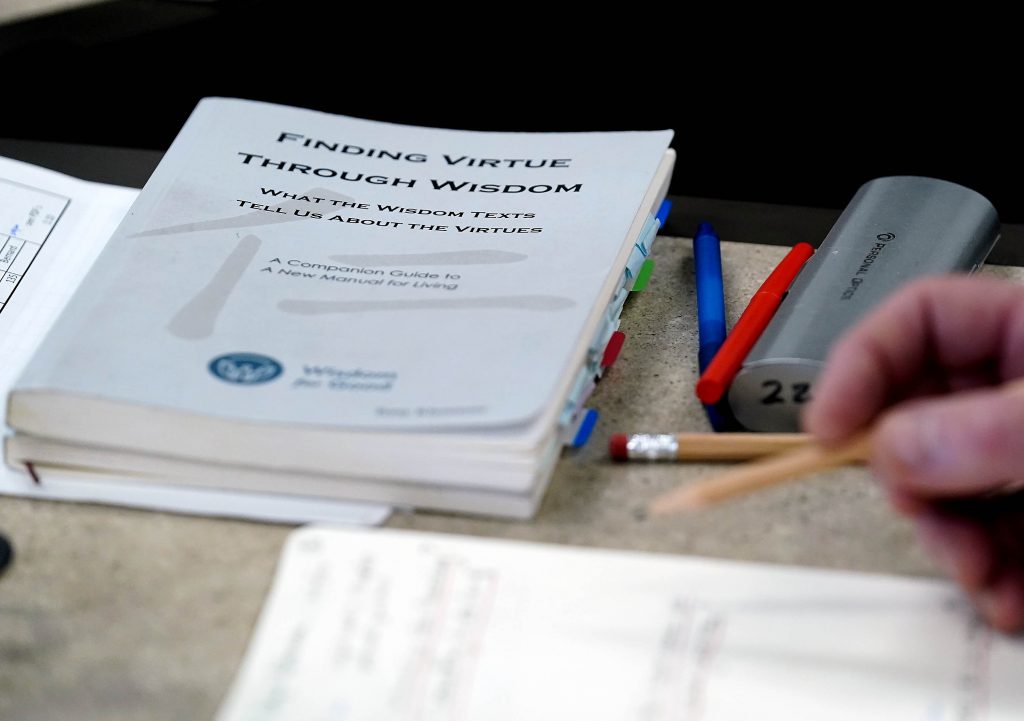
“You have to dig deep about a time when we had a moral failure and just sit in it and how we got ourselves in it and what virtue we were missing and then move forward intentionally about implementing that virtue,” she said. “We all put ourselves uncomfortably out there.”
She learned that a safe space could be created, whether you are religious or not – important tools for those who go on to teach in public schools.
“Some reflected on how they either had Jesus in their life or didn’t, and there was no judgment,” she said. “You didn’t have to have that to reflect on your own moral virtue. They aren’t tied to one faith. We all have it in us.”
Klemmer, a Harvard Business School graduate and a lecturer at Yale University’s School of Management, left the group on Wednesday with a reminder that “this was just a launch,” and the important work is ongoing.
“You are doing the right work at the right time,” he said in an interview about GCU’s character center.
“This may not be true at GCU, but our institutions that used to define our moral code, like schools and home life, don’t,” he said. “So we don’t have a moral code. This is a refresher of the moral language that is much needed.
“Not what is right or wrong, but what it is to be good. We don’t have the language. It’s important to revitalize that.”
Grand Canyon University senior writer Mike Kilen can be reached at [email protected] or at 602-639-6764.
****
Related content:
GCU News: 'Trusty' trio to lead new character center



































































